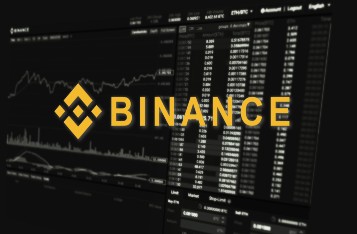
Here’s my monthly roundup of the best interest rates on cash as of September 2024, roughly sorted from shortest to longest maturities. There are lesser-known opportunities available to individual investors, often earning more money while keeping the same level of safety by moving to another FDIC-insured bank or NCUA-insured credit union. Check out my Ultimate Rate-Chaser Calculator to see how much extra interest you could earn from switching. Rates listed are available to everyone nationwide. Rates checked as of 9/15/2024.
TL;DR: Rates are dropping at all maturities, from money market funds outward, but really fast starting at 1 year out. Still 5%+ savings accounts and short-term CDs. Compare against Treasury bills and bonds at every maturity, taking into account state tax exemption. I no longer recommend fintech companies due to the possibility of loss due to poor recordkeeping and/or fraud.
High-yield savings accounts
Since the huge megabanks still pay essentially no interest, everyone should at least have a separate, no-fee online savings account to piggy-back onto your existing checking account. The interest rates on savings accounts can drop at any time, so I list the top rates as well as competitive rates from banks with a history of competitive rates and solid user experience. Some banks will bait you with a temporary top rate and then lower the rates in the hopes that you are too lazy to leave.
The top rate at the moment is at
Poppy at
5.50% APY (3-month rate guarantee). Newcomer
Pibank is also at
5.50% APY. I have no personal experience with either, but they are the top rates at the moment.
CIT Platinum Savings at
4.85% APY with $5,000+ balance.
SoFi Bank is at
4.50% APY + up to $325 new account bonus with direct deposit. You must maintain a direct deposit of any amount each month for the higher APY. SoFi has historically competitive rates and full banking features. See details at
$25 + $300 SoFi Money new account and deposit bonus.
Here is a limited survey of
high-yield savings accounts. They aren’t the top rates, but a group that have historically kept it relatively competitive such that I like to track their history.
Short-term guaranteed rates (1 year and under)
A common question is what to do with a big pile of cash that you’re waiting to deploy shortly (plan to buy a house soon, just sold your house, just sold your business, legal settlement, inheritance). My usual advice is to keep things simple and take your time. If not a savings account, then put it in a flexible short-term CD under the FDIC limits until you have a plan.
No Penalty CDs offer a fixed interest rate that can never go down, but you can still take out your money (once) without any fees if you want to use it elsewhere.
Marcus has a 7, 11, and 13-month No Penalty CD at
4.50% APY with a $500 minimum deposit. Consider opening multiple CDs in smaller increments for more flexibility.
Merchants Bank has a 1-year certificate at
5.25% APY ($1,000 min). I could not locate their early withdrawal penalty. This is their fixed-rate CD, watch out for the flex-rate ones.
Money market mutual funds
Many brokerage firms that pay out very little interest on their default cash sweep funds (and keep the difference for themselves). Note: Money market mutual funds are highly-regulated, but ultimately not FDIC-insured, so I would still stick with highly reputable firms.
Vanguard Federal Money Market Fund is the default sweep option for Vanguard brokerage accounts, which has an SEC yield of
5.19% (changes daily, but also works out to a compound yield of 5.32%, which is better for comparing against APY). Odds are this is much higher than your own broker’s default cash sweep interest rate.
Treasury Bills and Ultra-short Treasury ETFs
Another option is to buy individual Treasury bills which come in a variety of maturities from 4-weeks to 52-weeks and are fully backed by the US government. You can also invest in ETFs that hold a rotating basket of short-term Treasury Bills for you, while charging a small management fee for doing so. T-bill interest is exempt from state and local income taxes, which can make a significant difference in your effective yield.
You can
build your own T-Bill ladder at TreasuryDirect.gov or via a brokerage account with a bond desk like Vanguard and Fidelity. Here are the current
Treasury Bill rates. As of 9/13/24, a new 4-week T-Bill had the equivalent of
5.03% annualized interest and a 52-week T-Bill had the equivalent of
4.02% annualized interest.
The iShares 0-3 Month Treasury Bond ETF (
SGOV) has a 5.21% SEC yield and effective duration of 0.10 years. SPDR Bloomberg Barclays 1-3 Month T-Bill ETF (
BIL) has a 5.11% SEC yield and effective duration of 0.08 years.
US Savings Bonds
Series I Savings Bonds offer rates that are linked to inflation and backed by the US government. You must hold them for at least a year. If you redeem them within 5 years there is a penalty of the last 3 months of interest. The annual purchase limit for electronic I bonds is $10,000 per Social Security Number, available online at TreasuryDirect.gov. You can also buy an additional $5,000 in paper I bonds using your tax refund with IRS Form 8888.
“I Bonds” bought between May 2024 and October 2024 will earn a
4.28% rate for the first six months. The rate of the subsequent 6-month period will be based on inflation again.
More on Savings Bonds here.
In mid-October 2024, the CPI will be announced and you will have a short period where you will have a very close estimate of the rate for the next 12 months. I will have another post up at that time.
Rewards checking accounts
These unique checking accounts pay above-average interest rates, but with unique risks. You have to jump through certain hoops which usually involve 10+ debit card purchases each cycle, a certain number of ACH/direct deposits, and/or a certain number of logins per month. If you make a mistake (or they judge that you did) you risk earning zero interest for that month. Some folks don’t mind the extra work and attention required, while others would rather not bother. Rates can also drop suddenly, leaving a “bait-and-switch” feeling.
OnPath Federal Credit Union pays 7.00% APY on up to $10,000 if you make 15 debit card purchases, opt into online statements, and login to online or mobile banking once per statement cycle. Anyone can join this credit union via $5 membership fee to join partner organization. You can also get a
$50 Visa Reward card when you open a new account and make qualifying transactions.
Genisys Credit Union pays 6.75% APY on up to $7,500 if you make 10 debit card purchases of $5+ each per statement cycle, and opt into online statements. Anyone can join this credit union via $5 membership fee to join partner organization.
Credit Union of New Jersey pays 6.00% APY on up to $25,000 if you make 12 debit card purchases, opt into online statements, and make at least 1 direct deposit, online bill payment, or automatic payment (ACH) per statement cycle. Anyone can join this credit union via $5 membership fee to join partner organization.
Andrews Federal Credit Union pays 6.00% APY on up to $25,000 if you make 15 debit card purchases, opt into online statements, and make at least 1 direct deposit or ACH transaction per statement cycle. Anyone can join this credit union via partner organization.
Pelican State Credit Union pays 6.05% APY on up to $20,000 if you make 15 debit card purchases, opt into online statements, log into your account at least once, and make at least 1 direct deposit, online bill payment, or automatic payment (ACH) per statement cycle. Anyone can join this credit union via partner organization membership.
Orion Federal Credit Union pays 6.00% APY on up to $10,000 if you make electronic deposits of $500+ each month (ACH transfers count) and spend $500+ on your Orion debit or credit card each month. Anyone can join this credit union via $10 membership fee to partner organization membership.
All America/Redneck Bank pays 5.00% APY on up to $15,000 if you make 10 debit card purchases each monthly cycle with online statements.
Find a locally-restricted rewards checking account at
DepositAccounts.
Certificates of deposit (greater than 1 year)
CDs offer higher rates, but come with an early withdrawal penalty. By finding a bank CD with a reasonable early withdrawal penalty, you can enjoy higher rates but maintain access in a true emergency. Alternatively, consider building a CD ladder of different maturity lengths (ex. 1/2/3/4/5-years) such that you have access to part of the ladder each year, but your blended interest rate is higher than a savings account. When one CD matures, use that money to buy another 5-year CD to keep the ladder going. Some CDs also offer “add-ons” where you can deposit more funds if rates drop.
Lafayette Federal Credit Union (LFCU) has a 5-year certificate at
4.32% APY ($500 min), 4-year at 4.42% APY, 3-year at 4.52% APY, 2-year at 4.78% APY, and 1-year at 5.04% APY. Slightly higher rates with jumbo $100,000+ balances. Note that the early withdrawal penalty for the 5-year is a relatively large 600 days of interest. Anyone nationwide can join LFCU by joining the Home Ownership Financial Literacy Council (HOFLC) for a one-time $10 fee.
Advancial Federal Credit Union has has a 5-year certificate at
4.47% APY (higher $50,000 min). Anyone nationwide should be able to join via membership with partner organization US Dog Agility Association, but I would call or check first.
You can buy certificates of deposit via the bond desks of
Vanguard and
Fidelity. You may need an account to see the rates. These “brokered CDs” offer FDIC insurance and easy laddering, but they don’t come with predictable early withdrawal penalties. Right now, I see a 5-year
non-callable CD at
3.80% APY (callable: no, call protection: yes). Be warned that now
both Vanguard and Fidelity will list higher rates from
callable CDs, which importantly means they can call back your CD if rates drop later. (Issuers have indeed started calling some of their old 5%+ CDs as of September 2024.)
Longer-term Instruments
I’d use these with caution due to increased interest rate risk (tbh, I don’t use them at all), but I still track them to see the rest of the current yield curve.
Willing to lock up your money for 10 years? You can buy long-term certificates of deposit via the bond desks of
Vanguard and
Fidelity. These “brokered CDs” offer FDIC insurance, but they don’t come with predictable early withdrawal penalties. You might find something that pays more than your other brokerage cash and Treasury options. Right now, I see a 10-year CDs at [none available] (non-callable) vs. 3.66% for a
10-year Treasury. Watch out for higher rates from
callable CDs where they can call your CD back if interest rates drop.
All rates were checked as of 9/15/2024.
Photo by Giorgio Trovato on Unsplash
“The editorial content here is not provided by any of the companies mentioned, and has not been reviewed, approved or otherwise endorsed by any of these entities. Opinions expressed here are the author's alone. This email may contain links through which we are compensated when you click on or are approved for offers.”
Best Interest Rates on Cash Roundup – September 2024 from My Money Blog.
Copyright © 2004-2022 MyMoneyBlog.com. All Rights Reserved. Do not re-syndicate without permission.













 Bengali (Bangladesh) ·
Bengali (Bangladesh) ·  English (United States) ·
English (United States) ·